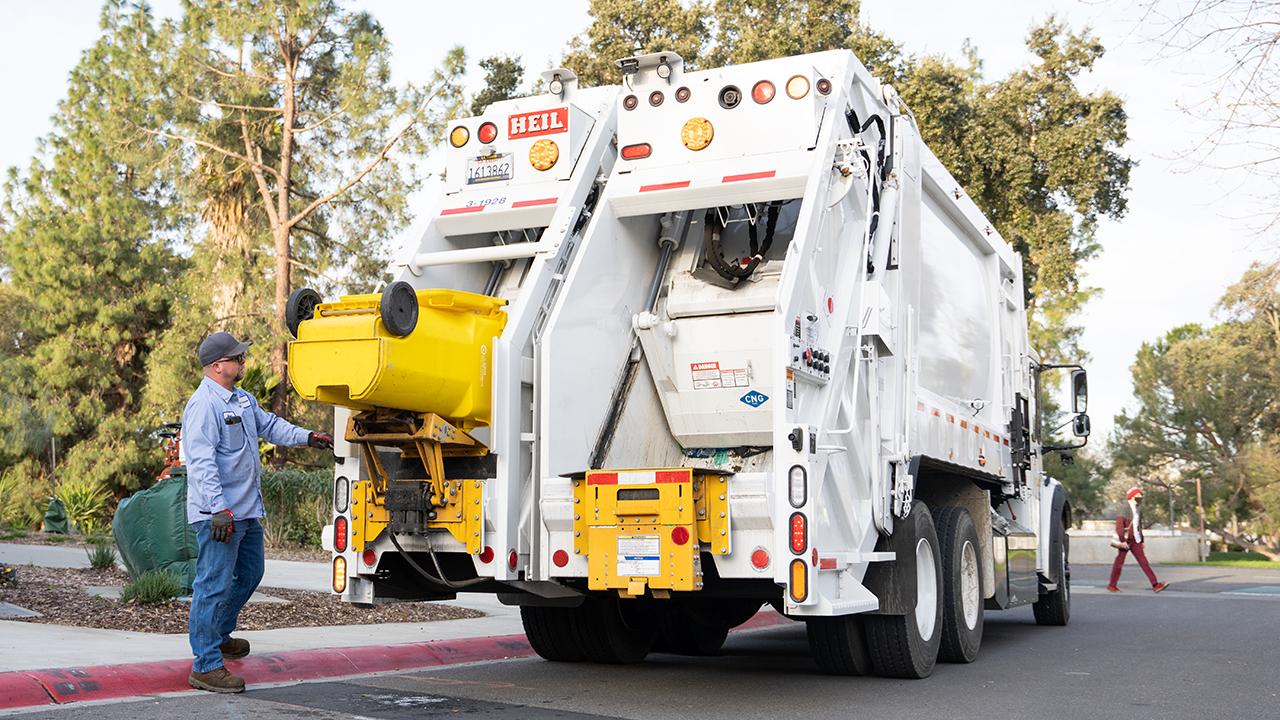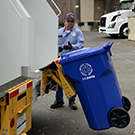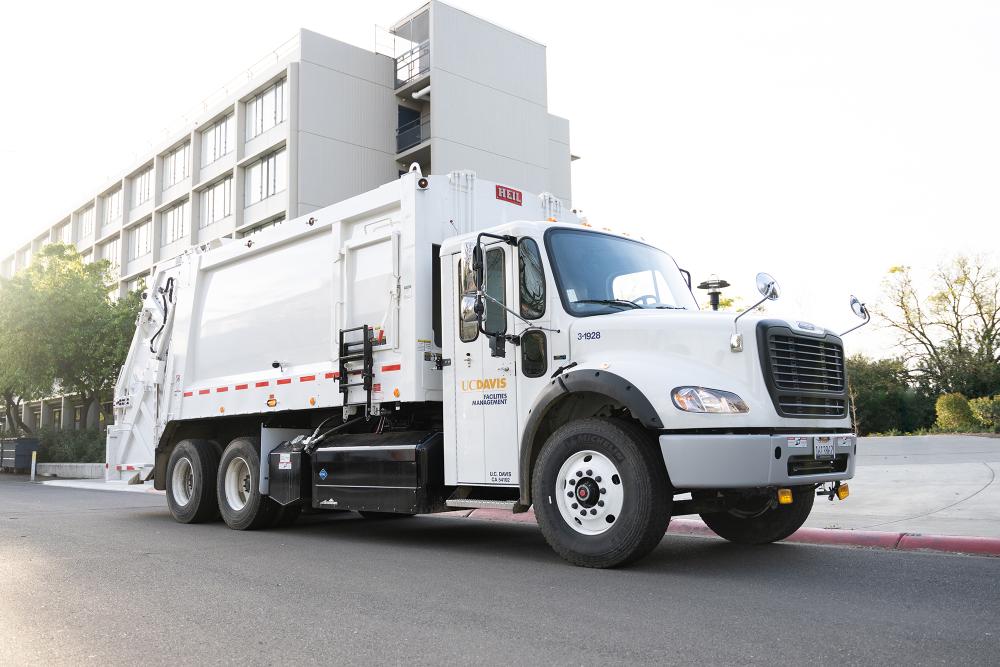
Compost Options Improve with New, Grant-funded Vehicle
| Quick Summary |
|---|
|
The arrival of the first compost truck on campus earlier this year signaled the further expansion of compost collection toward the university’s zero waste goals and compliance with state regulations.
Two For One!

The new truck can not only haul 10 yards of compost at a time, but also 15 yards of recycling. This allows for more efficient waste collection and for the purchase of the truck using grant funds. The truck was partially purchased using a CalRecycle grant aimed toward improving beverage container recycling on campus.
“About 60 percent of our current landfill waste can be diverted to compost, but in order to facilitate this we need to secure the proper infrastructure,” said Camille Kirk, director of sustainability and campus sustainability planner. “Thanks to a recent grant and collaboration with Facilities Management, we have been able to take a major step toward creating that infrastructure by buying our first compost truck.”
The new truck is able to pick up both compost and container recycle streams, replacing a pick-up truck previously used to collect and empty compost toters in addition to an aging recycling truck used to collect and empty recycle toters. Equipped with a built-in compactor, an automatic arm and seven times the capacity of the pickup truck, the new truck can service all current locations in a single trip, with less manual labor.
“The new truck enables us to us accomplish more work with less time and effort,” said Sue Vang, engagement and zero waste program manager for UC Davis Sustainability.
The new truck was purchased with a CalRecycle grant and funds from Solid Waste as an investment toward compliance with state regulations — such as Senate Bill 1383, which states the UC must provide compost collection service and bins starting on January 1, 2022.
“SB 1383 compliance requires significant investment in the compost process, from the cost of adding new bins, vehicles, and educational efforts on campus, to the disposal fees at compost facilities,” Vang said. Vang has played an essential role is securing funds toward this goal. She wrote the CalRecycle grant, which won funds for the truck.
“While grant funds have helped offset some of the initial costs, the campus will have to continue to invest in the operations infrastructure as the SB 1383 compliance date approaches."

To support the investment, representatives from Sustainability and Facilities Management are collaborating to launch a Zero Waste Pilot Project. Sustainability’s Zero Waste program performed waste audits and zero waste action planning and identified the opportunity to divert a large amount of organic waste from the landfill stream. The pilot so far has added 87 new compost bins across eleven buildings as part of the shift to centralized bins, increasing opportunities for people on campus to properly sort their organic waste. The waste diverted through these bins is now collected by the new compost truck and then taken to the Yolo County Landfill for composting.
“Compost service using toters has only been offered to 25 locations on campus because we lacked an appropriate truck to empty them efficiently,” Mike Fan, Utilities director, said. “On top of being more efficient on our current routes, the compost truck will now allow us to expand compost collection.”
Just in time for the planned return to campus this fall, many more buildings will soon be part of the Zero Waste Pilot Project. Sustainability and Facilities Management are currently working on a larger-scale rollout of compost bins to lobbies across campus. Learn more about the Zero Waste Pilot Project, where compost bins are currently located and when new compost locations come online by visiting the Facilities Management website.
